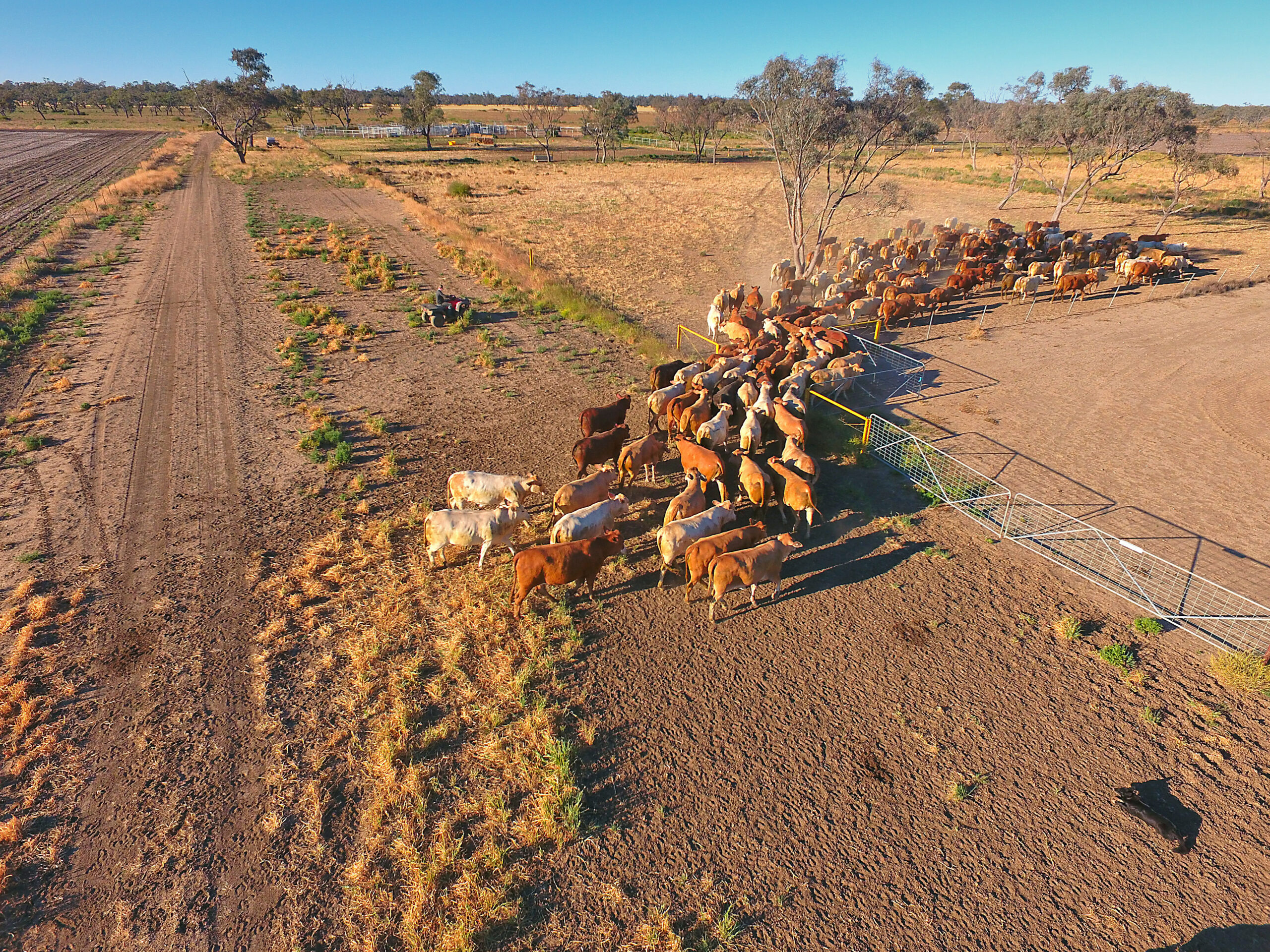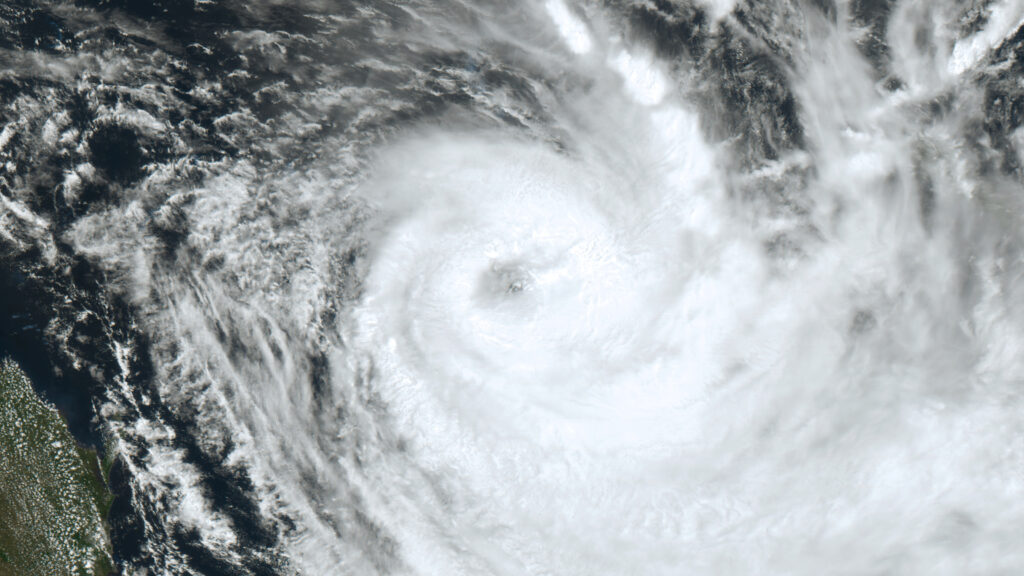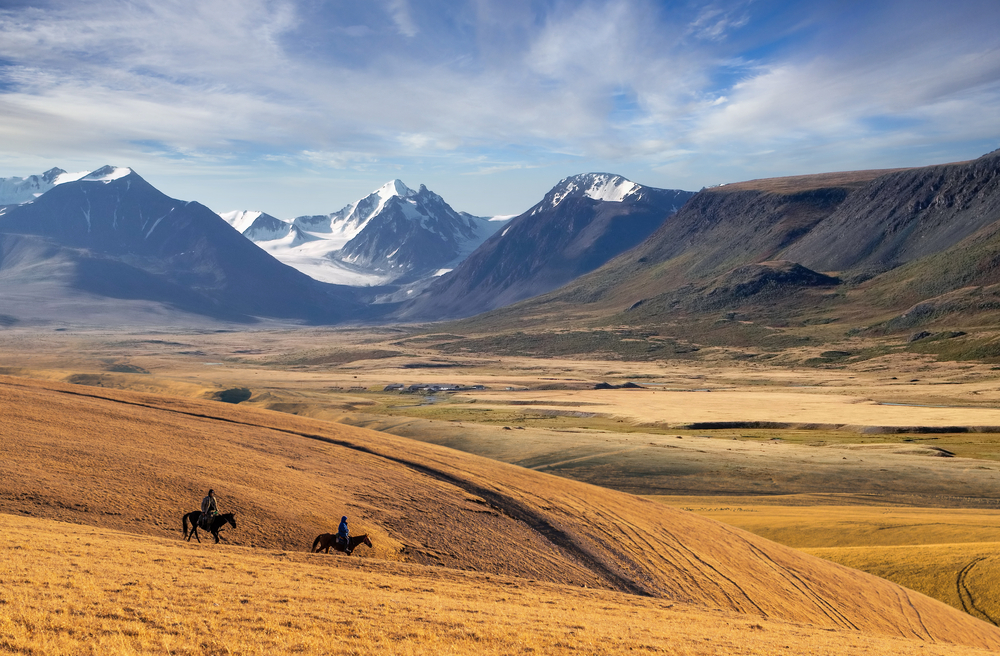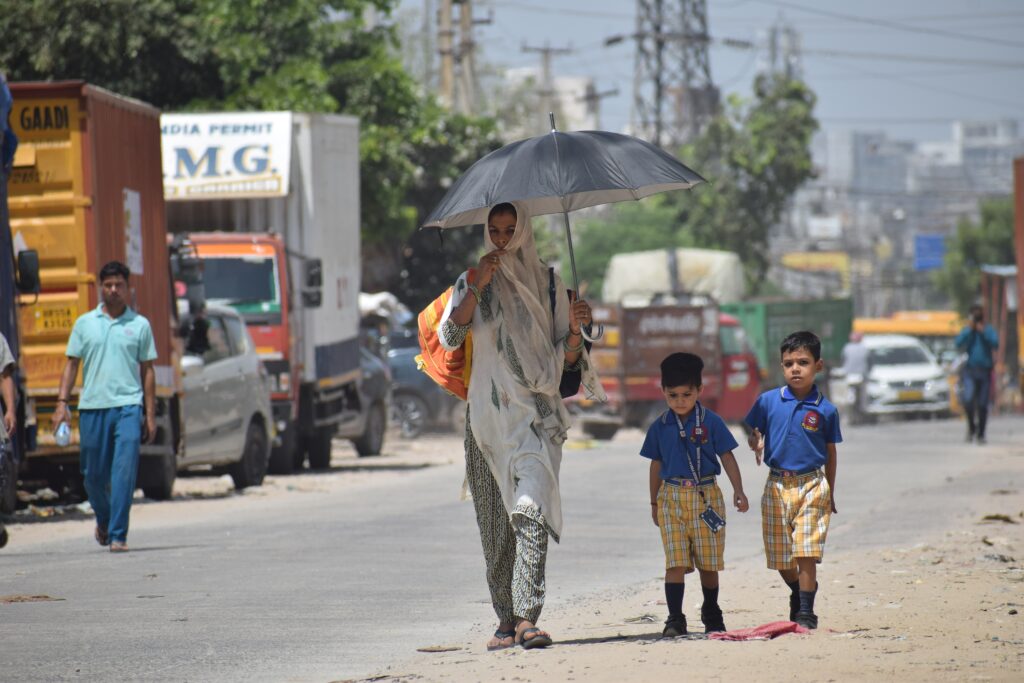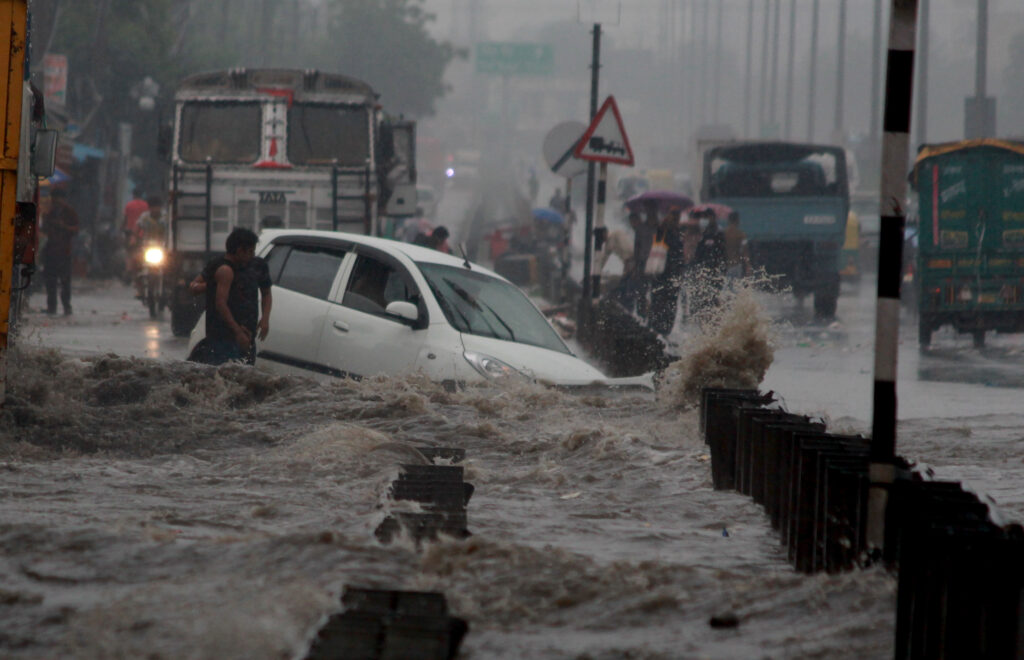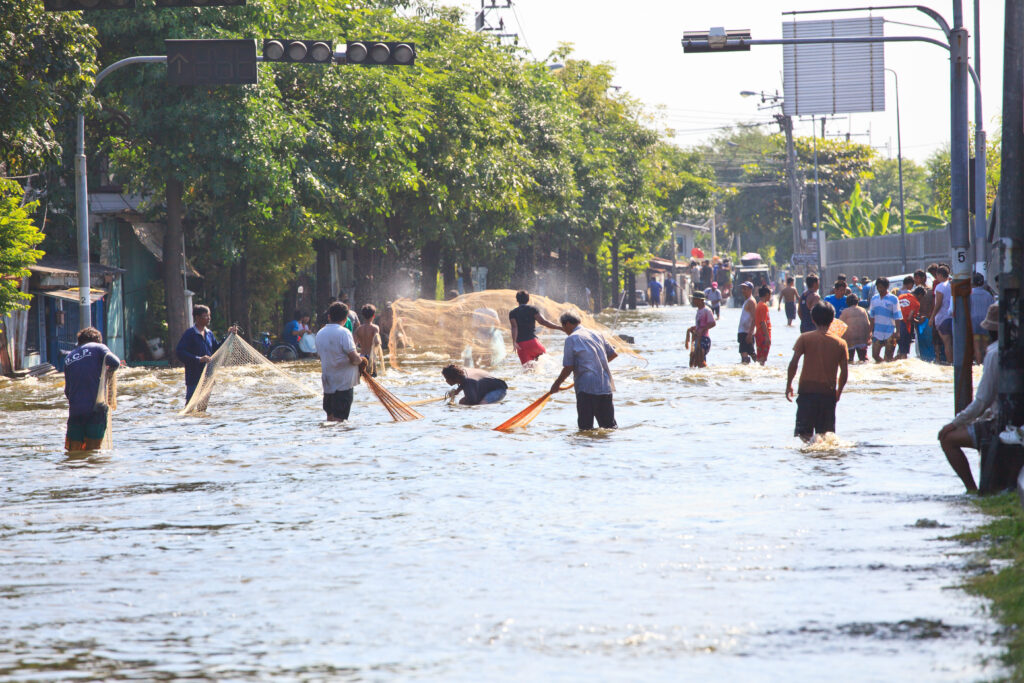Heat waves are a growing concern as climate change becomes more extreme. With the world on track to reach 1.5°C of warming midway through this century, heat is becoming a key issue capable of having major impacts on the socioeconomic dynamics of communities worldwide. Extreme temperatures and abnormally hot weather have become more commonplace – especially in tropical regions, but they are also spreading to temperate areas.
What Is a Heat Wave?
A heat wave is an extended period of unusually hot weather compared to historical averages in an area. As a result, heat waves are regionally and seasonally dependent on local conditions.
The World Meteorological Organisation (WMO) defines a heat wave as a period of five or more consecutive days when temperatures are more than 5oC above the average temperature between 1961 and 1990 for a region.
However, due to the regional variability, the WMO’s definition is not universal and national organisations have the power to define and declare heat waves locally. For example, in India, a heat wave is when weather stations on the plains exceed 40oC, or 30oC in the mountains, for two or more consecutive days.
This means that extreme heat can occur during any season and any region – even in polar areas. While extreme heat in colder areas may not be a major health risk for humans, they can be life threatening for the flora and fauna adapted to those regions. Alternatively, heat in warmer areas can be a serious health risk for humans; they cause heat exhaustion and heat related illnesses, particularly in tropical regions where they are often accompanied by high humidity.
What Is Extreme Heat?
When the temperature exceeds local thresholds, it is considered extreme heat. If the extreme temperature persists for an extended period, it is called a heat wave. Extreme heat causes heat waves and happens when temperatures are significantly higher than average.
How Often Do Heat Waves Occur?
Historically, heat waves have occurred, on average, twice a year. However, climate change-driven increased temperatures and disrupted weather patterns are increasing their frequency. During the 2010s, heat waves in the US occurred around six times a year on average – three times more frequently than during the 1960s.
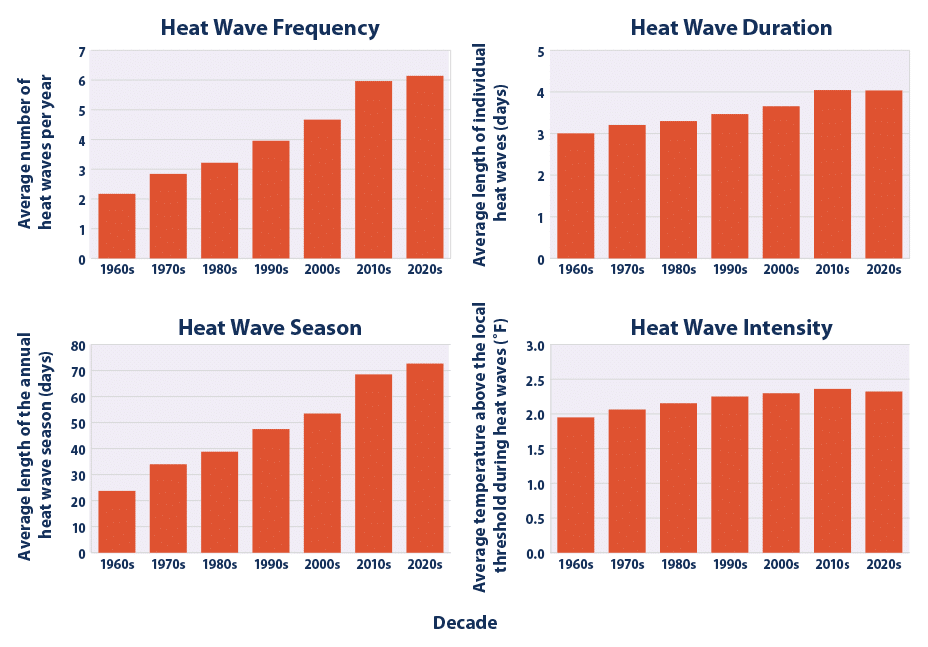
This trend continues on a global scale. A recent study found that 41 regions worldwide have experienced “statistically implausible” levels of heat since 1959. This has made weather events that usually occur every thousand years occur on a 100-year cycle.
How Long Do Heat Waves Last?
There is a similar trend for the length of extreme heat events. During the 1970s, heat waves typically lasted nine days. Yet, by 2020, this figure had doubled to 18 days. In the US, the average heat wave season is 49 days longer than it was in the 1960s. Periods of extreme heat occur more often and for longer periods across the world.
Why Are Heat Waves Dangerous?
As heat waves’ frequency, duration and intensity rise, so do the risks like heat related illness and heat stroke. Heat can seriously impact local communities – especially in areas not used to the extreme temperatures.
The World Health Organisation summarises these concerns: “Heat waves can acutely impact large populations for short periods of time, often trigger public health emergencies, and result in excess mortality, and cascading socioeconomic impacts.” The organisation adds that they “can also cause loss of health service delivery capacity” and result in power shortages, which “disrupt health facilities, transport, and water infrastructure”.
What Is the Worst Heat Wave Ever Recorded?
The worst heat wave ever recorded was during the 2003 European summer. It indirectly claimed over 70,000 lives across the entire EU.
In terms of a single country, the record stands at 56,000 deaths in Russia during the summer of 2010. The event had such a drastic impact because the region was relatively unaccustomed to extreme heat, leading to a cascade of impacts – namely agricultural failure and record-setting wildfires.
Are Heat Waves Caused by Climate Change?
Heat waves are a naturally occurring process that has been occurring on Earth since before humans existed. However, climate change directly increases the frequency and severity of heat waves.
Driven by the combustion of fossil fuels and other greenhouse gases, the planet is becoming warmer, which is deregulating the climate systems that dictate seasonal minimum and maximum temperature changes. As such, extreme weather, like high temperatures, is becoming more common and destructive.
How Does Climate Change Cause Heat Waves?
Climate change causes more severe, excessive heat through two main pathways: higher global temperatures and stagnant weather patterns.
The temperature increase is linked to the high amount of greenhouse gases (GHGs) in the atmosphere, mainly from the human combustion of fossil fuels and the removal of natural carbon sinks. These gases trap more heat from the sun and drive up global temperatures and reduce air quality.
This pattern perpetuates feedback loops that diminish Earth’s natural defences against solar radiation. It continues to drive record temperatures and disrupts natural weather patterns.
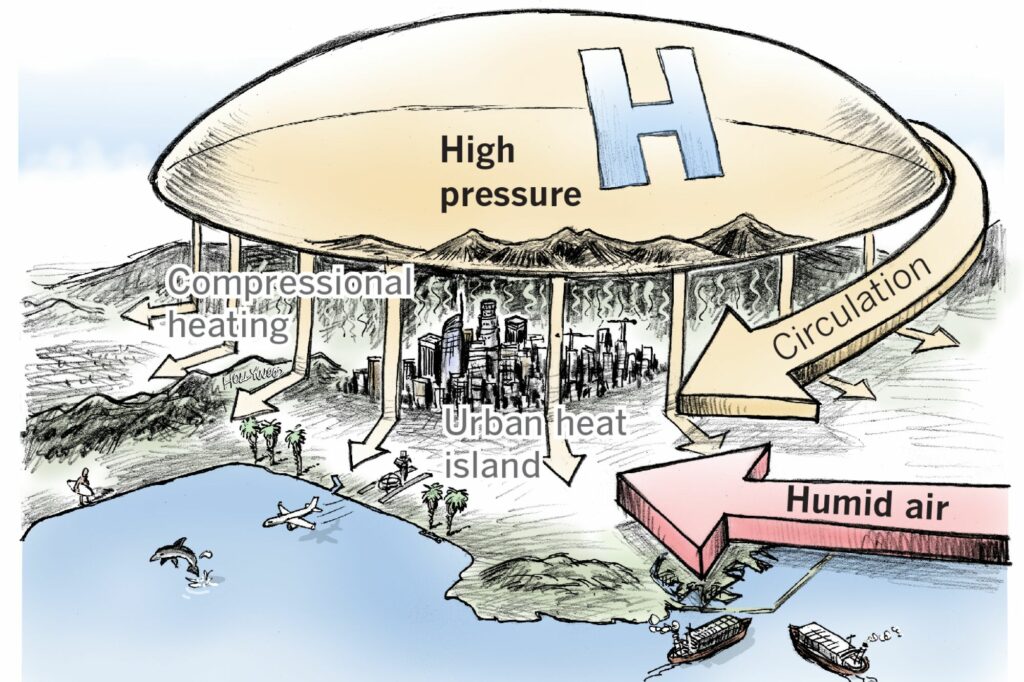
As weather patterns change, areas of high pressure grow and air movement can become stagnant, allowing heat to accumulate over a specific region. As more heat accumulates, temperatures increase, leading to longer and more extreme periods of high temperatures.
Heat Waves in Asia
Temperatures across Asia have broken records just several months into 2023. Chelsea Harvey from E&E News highlights that Thailand, Vietnam, Laos, Myanmar, Bangladesh and parts of China have all experienced major heat waves in 2023. Harvey added, “The city of Dhaka, Bangladesh, recorded its highest temperature in nearly six decades on April 16.” It was 40.6°C.
As Carbon Brief lays out, Asia is one of the major areas at risk of continued high temperatures and extreme heat, damaging human health. People without air conditioning and outdoor workers are the most affected.
Heat Waves in Europe
Europe has seen an increase in abnormally high temperatures in recent decades, and temperature records were once again broken just four months into 2023.
In Spain, the barometer reached a new April temperature record of 38.8°C, feeding into the increasing desertification and drought in the country. This problem is being mirrored in countries across Europe.
Heat Waves in Africa
Heat has been a major issue in Africa for several years as extended droughts and crop failures drive many rural Africans to migrate towards major urban centres, aggravating socioeconomic issues in the region.
Central Africa is already averaging eight to 10 heat waves per year, with heat stress increasing across communities in Southern Africa. At the same time, North Africa and the Middle East could reach temperatures of 56°C should climate action remain insufficient.
Heat Waves in Australia
Australia has seen increases in major bushfires as the country’s temperatures increase and drought conditions set in. The 2020 fire was one of the largest on record and was tied directly to climate change and extreme heat.
According to the state government of New South Wales, “Heat waves are a significant hazard in Australia for both people and the environment. They have been responsible for more human deaths than any other natural hazard, including bushfires, storms, tropical cyclones, and floods.”
Eric Koons
Writer, United States
Eric is a passionate environmental advocate that believes renewable energy is a key piece in meeting the world’s growing energy demands. He received an environmental science degree from the University of California and has worked to promote environmentally and socially sustainable practices since. Eric has worked with leading environmental organisations, such as World Resources Institute and Hitachi ABB Power Grids.
Eric is a passionate environmental advocate that believes renewable energy is a key piece in meeting the world’s growing energy demands. He received an environmental science degree from the University of California and has worked to promote environmentally and socially sustainable practices since. Eric has worked with leading environmental organisations, such as World Resources Institute and Hitachi ABB Power Grids.

